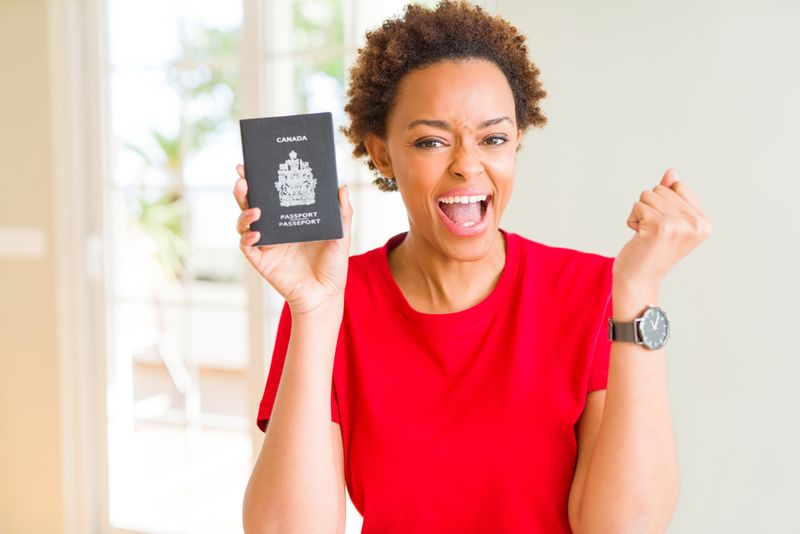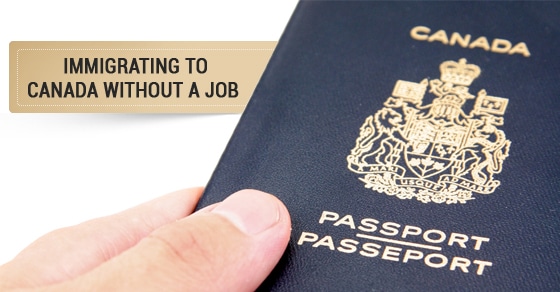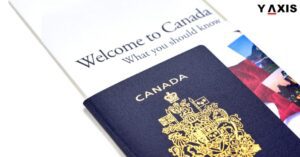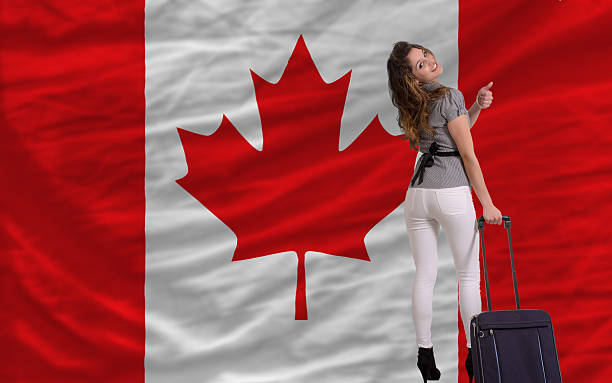Canada is a prime destination for many foreign nationals who are seeking employment opportunities. Working in Canada is also an excellent first step for those seeking to immigrate to the country permanently.
Types of Canadian work permits
There are many different options for obtaining a Canadian work permit. Some work permits require a job offer from a Canadian employer, some require that the employer provide a Labour Market Impact Assessment (LMIA), while others require that a person has some sort of connection to Canada (previous education, spousal sponsorship, etc.). Please refer to the following categories below to determine the work permit which best suits your qualifications:
Requiring a Labour Market Impact Assessment (LMIA)
LMIA-Exempt but requiring a job offer or employment contract
Open Work Permits (no job offer or LMIA required)
- Post-Graduation Work Permits (PGWP)
- Spousal Sponsorship from Inside of Canada
- International Experience Canada (IEC) (working holiday visa)
- Bridging Open Work Permit (BOWP)
- Spouse Accompanying International Student or Worker
Immigration Tip: Canadian permanent residents do not require a work permit to work in Canada. Permanent resident status gives a person the legal right to live and work anywhere in the country. Find out more about permanent immigration options for professional and skilled workers.
How to obtain a Canadian work permit
The process for obtaining a Canadian work permit varies greatly depending on which type of work permit a person is applying for. For example, an international student studying in Canada will oftentimes be automatically issued authorization to work part-time as part of their study permit authorization.
Most closed work permit applications require that a foreign national has an official job offer from a Canadian employer which is supported by a Labour Market Impact Assessment (LMIA). Even those who are LMIA-exempt or exempt from requiring a work permit should be aware of the unique documentation they need to prepare in order to ensure they are granted entry to Canada. There are two general pathways for obtaining a Canadian work permit: a closed (restricted) work permit and an open work permit.
Closed work permits are tied to specific employers, this means that a foreign national issued a closed work permit must remain working with the same employer at the same location unless they change their work permit.
If I have a Canadian job offer, am I eligible to apply for a work permit?
Having a Canadian job offer does not necessarily mean you are eligible to apply for a work permit. A job offer must meet certain requirements to be considered valid for certain work permit applications. In most cases, in order to be eligible for a work permit, an applicant’s job offer must be either:
- Supported by a positive Labour Market Impact Assessment (LMIA); or
- Exempt from requiring an LMIA.
It is important to note that the province of Quebec has its own process for determining the validity of an offer of employment.
What am I allowed to do on a Canadian work permit?
Your physical work permit outlines the specific restrictions attached to your authorization. These limitations will mainly be determined by the type of work permit you are eligible for. Conditions may include the type of work you can engage in, where and for whom you can work, and how long you can work in Canada. All work permit holders are prohibited from working at a business where is are grounds to suspect a risk of sexual exploitations of some workers.
Work permit holders are not permanent residents of Canada and must leave the country by the end of their authorized stay. However, if you are working in Canada and would like to remain permanently, complete our free assessment form to receive a full evaluation of your immigration options.
Can my family be included on my work permit application?
If you are applying for an employer-supported work permit, you may be eligible to have your spouse and dependent children accompany you to Canada.
If your children are school-aged and are in Canada, they may attend Canadian educational institutions without requiring a separate study permit. Your spouse or partner may also be eligible to apply for an open work permit, allowing them to work for any employer in Canada.
How much does a Canadian work permit cost?
The processing fee for a closed work permit is $155 CAD per person or $255 per person for an open work permit. If you are restoring a work permit or applying as a group of performing artists, additional fees will apply.
How do I apply for a work permit?
The application procedure is different depending on which type of work permit you need. The first step is determining which work permit is best for you. If you need help figuring out the application, simply contact us and a member of our team will assist you with scheduling a consultation.
What documents are required to apply for a Canadian work permit?
The documents required for a Canadian work permit will depend on the type of work permit you are applying for. Applicants may need to provide the following documents as part of their work permit application:
- Completed application forms
- Proof of status in Canada (if applicable)
- Family member’s proof of status (if applicable)
- Labour Market Impact Assessment (if applicable)
- Written offer of employment (if applicable)
- CV/ résumé
- Marriage certificate (if applicable)
- Certificat d’acceptation du Québec (CAQ) (if applicable)
- Proof that you meet the job requirements
- Valid copy of your passport
- Copy of education credential
- Medical exam results (if requested)
- Evidence of financial means to stay in Canada and return to home country
- Proof of payment for applicable government fees
- Recent passport-sized photos
Biometrics for Canadian work permits
IRCC currently has a temporary measure in place that exempts applicants applying for a work permit from within Canada. Candidates outside of Canada are still required to provide biometrics upon receiving a biometrics instruction letter.
Follow the government of Canada’s instructions for how to give your biometrics on their dedicated page.
Police clearances for Canadian work permits
The visa officer reviewing your application may ask you to provide police clearances certificates. Depending on where you are applying from, this document may be part of your application checklist and must be provided with your initial submission.
Work permit applicants may be required to provide a police clearance certificate from any country that they have lived in for 6 months or more past the age of 18.
Medical exam for Canadian work permit
Foreign nationals that apply to work in Canada may need to complete a medical exam, depending on their intended length of stay, where they have lived, and what occupation they will work in.
If you intend to work in Canada for less than 6 months, you will likely not require a medical exam, with some exceptions. In the case that you intend to work in a job that brings you into close contact with people or are an agricultural worker that has been to certain countries, you will need a medical exam.
If you are planning to work in Canada for longer than 6 months, you will be required to take a medical exam if one of the following conditions applies:
- You have lived in or travelled to one of the countries listed on Canada’s ‘Find out if you need a medical exam’ page for 6-months or longer, or
- You intend to work in an occupation where you will be in close contact with people listed in the above-mentioned hyperlink
Medical exams must be completed with a panel physician designated by IRCC. You can find a panel physician near you on IRCC’s Find a Panel Physician webpage.
Applicants have the option to take an upfront medical exam. This involves contacting the panel physician directly and taking the exam prior to submitting a work permit application. If you do not provide your medical exam results with your application, the IRCC officer will send instructions on how to complete the medical exam and provide a deadline for when it needs to be completed.
Photo requirements for Canadian work permit
Foreign nationals applying for a Canadian work permit must provide a passport-sized photo with their application. The photo must be according to IRCC’s specifications.
How long will it take to process my work permit application?
The processing time for a work permit application depends on the type of work permit and the applicant’s country of residence at the time of application. Processing times range anywhere from a few weeks to several months.
How long will it take to process my LMIA application?
There are two types of Labour Market Impact Assessment (LMIA) applications: a regular LMIA and a simplified LMIA. The simplified LMIA is only available in the province of Quebec. The regular LMIA is processed on a case-by-case basis with processing times varying greatly from applicant to applicant. Generally, it takes a minimum of five months to receive a response on a regular LMIA application.
If an employer is eligible for Canada’s Global Talent Stream, they may qualify for expedited LMIA processing. The simplified LMIA completed for Quebec employment is usually processed in approximately two to three months.
What is the rate of success for work permit/LMIA applications?
It is impossible to give a rate of success for work permit/LMIA applications, as all applications are processed on a case-by-case basis. If an applicant meets the requirements of the LMIA, their application should be approved. However, applications are assessed by individual officers, each exercising their own discretion in choosing whether or not to approve a work permit application.





![Working In Australia [Visa Sponsorship for Immigrants] Working In Australia [Visa Sponsorship for Immigrants]](https://listawe.com/wp-content/plugins/contextual-related-posts/default.png)
